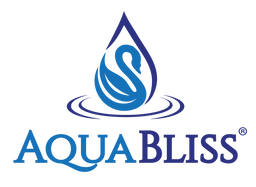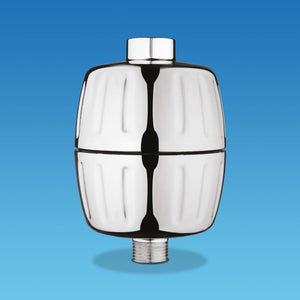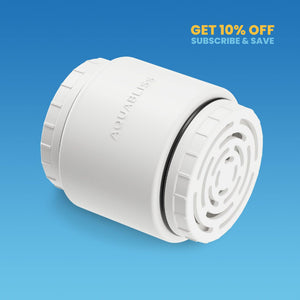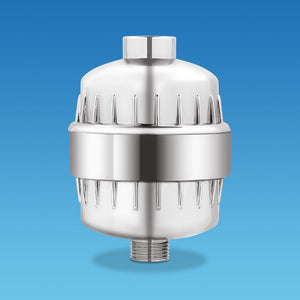Is there anything more refreshing than a warm soak in the shower, or a cool five-minute wash on a hot day? We don’t think so. But the art of showering brings up many questions. How often should you wash your hair?
What water pressure is best for you? And of course, the most debated question of all - how long should a shower take? The simpler answer is that most people should shower for around 5 to 10 minutes, though this can change based on your personal needs, hair type, and the unique reasons for this specific shower.
Is it just a routine morning shower? Or did you just arrive back home after attending a three-day festival, camping, and dancing all the while? The average shower lasts about 8 minutes according to most studies, but there's quite a bit more to consider.
In this post, we hope to definitely answer that question for you once and for all.
How Much Time Should You Take To Shower?

How long should showers be? Well, what’s the average? According to various studies, the average shower time sits somewhere between 7 and 9 minutes for most adults, though
Americans tend to shower a bit longer than Europeans, who often keep things closer to 5 to 7 minutes. The general recommendation from dermatologists is around 5 to 10 minutes for most people, which gives you enough time to properly cleanse your skin and hair without stripping away the natural oils that keep your skin hydrated.
Your personal circumstances definitely matter here, and someone who works outdoors or exercises regularly might need slightly longer to address sweat and dirt, or someone with a desk job might find that five minutes does the trick perfectly well.
If you have any mobility issues, longer showers are of course understandable and necessary.
Factors That Influence Shower Time
Of course, shower times aren’t an exact science, and if it’s your shower, you get to decide how long you prefer to be in there. However, you may find some of the following influences alter your average wash time:
Personal Preferences
Some people genuinely find a hot shower to be one of the most relaxing parts of their day, using the warm water and quiet time as stress relief that helps them process thoughts after a busy day, singing using the shampoo bottle as a microphone, or just meditating.
Other people prefer to get in and get out quickly, viewing showering as a necessary task rather than a leisure activity, and they've developed efficient routines that let them thoroughly clean themselves without extra time under the water.
Type of Shower
Depending on your shower type and who you share the bathroom/ensuite with, your lengths may differ. Wet rooms are known for being a little more luxurious, but a smaller shower unit might inspire a quicker wash.
Of course, if you have family members or roommates waiting on you, this can influence how long you spend in there.
Water Temperature
Hot water feels incredibly soothing, but it can lead to longer shower times because people tend to linger under water that feels good on their skin and muscles. Conversely, lukewarm showers will clearly encourage shorter sessions even if they’re nourishing and rejuvenating, because they can feel uncomfortable on the skin.
Sometimes the question that asks “how long does a shower take” will depend on how comfortable the person is in there. Keep in mind that hot water can cause your pores to open up more and strip away natural oils, leading to dry skin or irritation, so finding that middle ground helps maintain both good skin health and reasonable shower durations.
Showerhead Type
Your shower heads can impact how efficient your routine feels since high-pressure water helps rinse soap and shampoo more quickly, while low-pressure water might require more time to feel properly clean. It’s why good water pressure is often prized.
Skin and Hair Care Routines
The products you use and your hair condition will often be the deciding factor, since someone with long, thick hair will naturally need more time to properly wash it than someone with short or no hair.
Moreover, people dealing with skin conditions like eczema or acne might require gentler, more thorough cleansing routines that take additional time but are necessary for keeping themselves healthy.
Water Conservation
More and more people are conscious about their environmental impact and water bill, which means they’ll often develop strategies to reduce shower time without losing out on cleanliness.
That could include turning off the water while soaping up or using efficient shower heads that maintain good pressure while using less water to save water. They may even shower less, preferring body washes from the sink.
The Ideal Shower Duration
Most dermatologists agree that 5 to 10 minutes is perfect for most people, as it gives us enough time to properly cleanse the body and hair while avoiding the negative effects that come from over-showering or spending too much time under hot water. Moreover, this timeframe helps you sustain the natural oils and good and bad bacteria balance that keeps your skin healthy.
However, if you have additional needs as we discussed above, you’re not “showering incorrectly” for going over this guideline. On the environmental side, experts mostly recommend staying closer to the 5-minute mark for water conservation, pointing out that most people can accomplish their hygiene goals within this timeframe with some practice.
The effects of long showers extended time in the shower can have both positive and negative impacts on your body and overall well-being, which means that understanding these effects helps you make informed decisions about your bathing routine.
Positives
Longer showers are known to have mental health benefits because they give us a quiet space for reflection and relaxation that can help us feel better. The heat and steam help relax tense muscles too, which is fantastic after exercise, and many find their best thinking happens during these extended sessions under the warm water.
Negatives
Spending too much time under hot water can sometimes cause skin problems, including dryness, irritation, and removal of beneficial natural oils your body produces to keep your skin hydrated.
On top of that, over-showering disrupts the balance on your skin and can possibly worsen existing skin conditions, while the environmental impact adds up quickly in terms of water usage, energy costs, and higher water bills.
The Effects of Short Showers
Keeping your showers brief has several advantages, though there can be drawbacks depending on your specific needs.
Positives
Short showers are better for water conservation, which can mean savings on your water bill over time, especially if multiple household members focus on that. It’s also good for your skin, as discussed above.
Negatives
Very short showers might feel rushed or less satisfying if you value that quiet time under the water, and there is something to be said for mental health benefits that come from having extra minutes to decompress from the business of daily life.
Moreover, quick showers might not provide enough time for activities like shaving or applying hair treatments, and people who shower too quickly might not thoroughly rinse soap or shampoo.
Tips for Reducing Shower Time Without Compromising Hygiene
Thankfully, you can still optimize your routine without losing out on being hygienic by focusing on how you organize and manage your routine. Even the little changes add up to time savings if you’re looking for them.
If you place your products so everything's within easy reach, consider combination products like 2-in-1 shampoo, and turn off water while soaping up, you can make a big positive benefit on your water intake.
If you consider showering at slightly cooler temperatures, it’ll also lessen your temptation to stay too long, and can be better for your skin and more refreshing, too.
Can Shower Filters Impact Shower Time?

Yes, shower filters can positively influence the time you spend under the water, although keep in mind that the effects will vary depending on the type you choose and the specific water quality issues you're addressing.
Filtered water can be beneficial for your health, as it positively impacts your skin and hair by reducing chlorine, heavy metals, and other contaminants. Users who switch to filtered water often find that their skin feels less dry and their hair becomes more manageable, which can reduce the time needed for post-shower moisturizing routines and help alleviate conditions like eczema.
AquaBliss shower filters can provide an excellent solution for improving water quality without lessening flow, and their multi-stage filtration reduces chlorine and contaminants that affect comfort during showering and skin health afterward.
You can explore our shower filters to find the right option for your water quality needs.
What is Your Perfect Shower Routine?
As demonstrated above, the duration of a shower doesn't have a universal answer, but most people find 5 to 10 minutes to be sufficient, providing enough time for proper hygiene while ensuring skin health and conserving water and energy.
Remember that over-showering can harm your skin by stripping natural oils and disrupting beneficial bacteria balance, while under-showering might leave you feeling unclean.
If you’re ready to enhance your shower experience, consider AquaBliss shower filters and discover how improved water quality can benefit your daily routine, all while supporting your health and green goals.







